As a website owner, it is common to continuously search for ways to improve the search rankings of your website and reach a larger audience. With the vast amount of competition present on the internet, attaining high rankings on Google and standing out from the rest can be a challenging task.
However, with a proper approach and a thorough understanding of Google’s ranking algorithms, you can give your website the necessary boost to reach the top of the search rankings and surpass your competition. In this in-depth guide, we will discuss some of the most effective strategies for outranking your competition and obtaining higher Google rankings.

Understanding Google’s ranking algorithms
The initial step in surpassing your competition is to have a deep understanding of how Google’s ranking algorithms function. Google employs a complex algorithm to assess the relevance and quality of websites, considering various factors such as the usage of keywords, the quality of content, backlinks, the structure of the website, and user experience.
To attain a high ranking on Google, it is essential to concentrate on providing high-quality, relevant content that caters to the needs of your target audience. This involves utilising keywords efficiently, creating well-researched and comprehensive articles, and ensuring that your website is straightforward to navigate and use.
Google places great importance on user experience, making it crucial to ensure that your website is fast, user-friendly, and mobile optimised. This entails utilising a responsive design, reducing the use of intrusive advertisements such as pop-ups, and optimising your website for speed and performance.
Optimising Your Website for Search Engines & Higher Google Ranking
Optimising your website for search engines is critical if you desire to rank high on Google and surpass your competition. This involves structuring your website in a manner that makes it easy for search engines to crawl and index your pages.
1. Producing Quality Content
Creating quality content is the cornerstone of any successful SEO strategy. Not only does high-quality content assist in attracting and retaining visitors, but it also gives your website the relevance and authority needed to rank high on Google.
But there are a number of steps involved:
SEO Keyword Analysis
Search Engine Optimization (SEO) plays a crucial role for any business seeking to increase their visibility on the web. A higher ranking in search engine results pages (SERPs) means that more people will view your website, providing you with the opportunity to offer your product or service to a broader customer base.
Words hold great power in the digital world, with certain words having the ability to impact your online rankings. Keywords can be single words or phrases that people frequently use when searching for information related to what you offer. Incorporating carefully researched and analysed keywords into your content is crucial as it enables potential customers to easily find your website.
A good starting point for researching keywords is often your competitors. Tools such as Semrush enable you to see the top organic keywords that your competitors rank for, along with information such as search volume and competitive density. By utilising this information, you can identify low-hanging fruit and overtake your competitors in the search rankings.
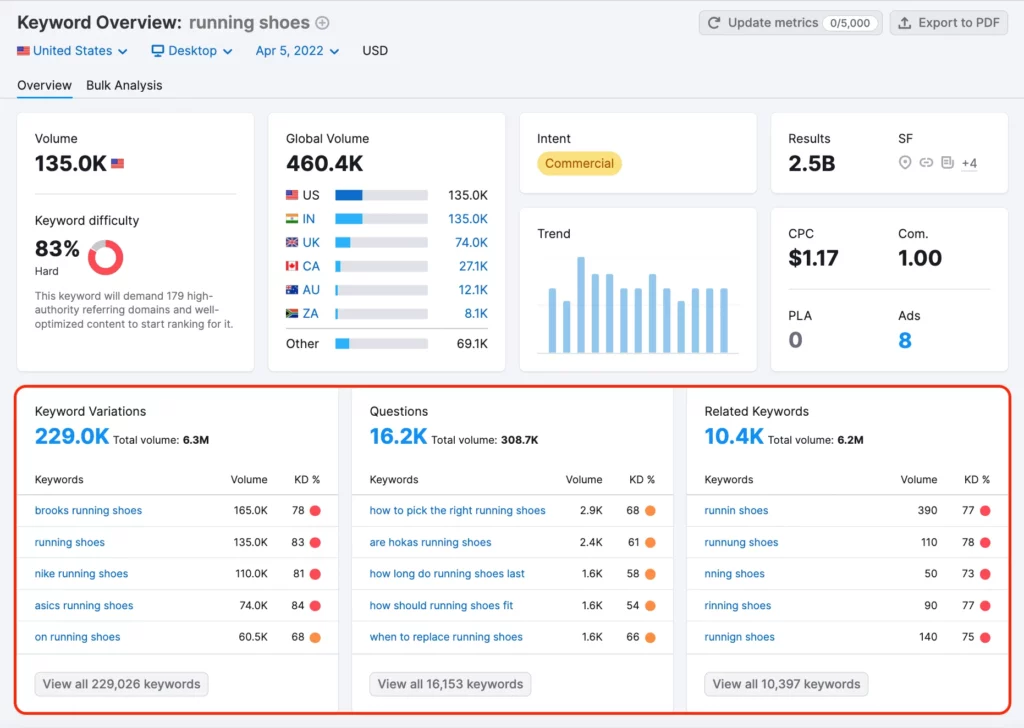
Writing A Unique And Well Researched Article
To write high-quality content, it’s important to focus on several key factors. Firstly, your content should be well-researched and provide valuable information to your target audience. This can be achieved by covering the topic in depth, including helpful tips and insights, and incorporating relevant images and videos whenever possible.
Another important factor to consider is the search intent behind your content. Determine whether your visitors are seeking information or looking to make a transaction, as this will give you a better understanding of the angle your content should take.
Furthermore, it’s essential to ensure that your content is original and unique. Google penalises websites that use duplicate content, so it’s important to avoid plagiarism and write content specifically for your website.
In terms of length, it’s important to consider the appropriate length for your content. Generally, it’s recommended to aim for a minimum of 2,100 words per article, but this can vary depending on your industry.
Finally, it’s not just about including the keyword multiple times, but also ensuring that it fits naturally within the content. Instead of focusing on the keyword, it’s more effective to choose a cluster of semantically related phrases and use these throughout your content. Google’s algorithm is becoming more human-like, so it’s important to write for both readers and search engines.
– Read Our Article on how AI can help you supercharge your copywriting process.
Covering All Of The SEO Bases
SEO and content creation go hand in hand. Content creation allows you to directly engage with your current and potential customers, and by doing so, you can build authority, trust, consistency, and engagement, which ultimately leads to increased website traffic and promotion of your brand.
While it is important to write helpful content and incorporate relevant keywords into your body content, it’s also essential not to overlook other critical SEO elements such as title tags, meta descriptions, and image alt tags. These elements play a crucial role in your website’s visibility on search engines and can be easily overlooked.
In addition to focusing on these elements, it’s also crucial to leverage the power of internal linking between content on your website. As you build a portfolio of blog posts, regularly review them and link to other relevant articles. This not only showcases the support between the content on your website, but it also encourages visitors to explore your site further, increasing page views and decreasing bounce rate, which is viewed favourably by Google.
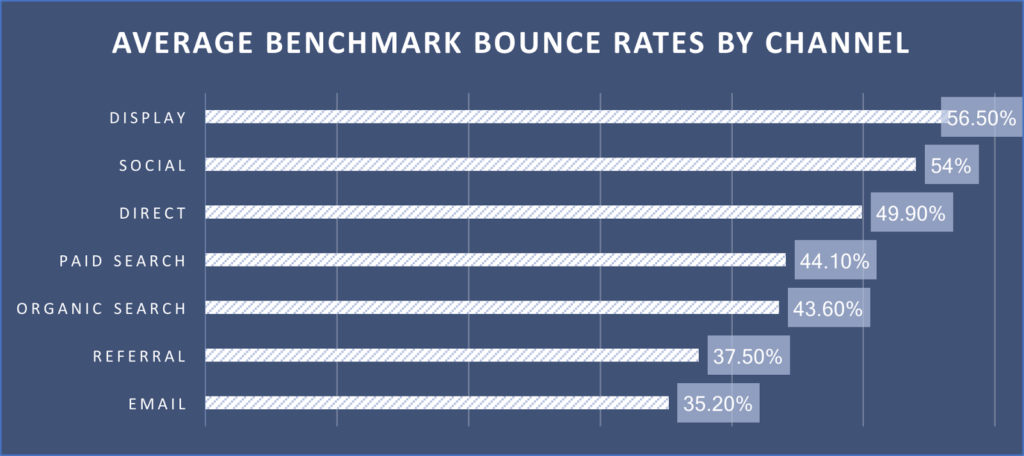
2. Build A White-Hat Backlink Strategy
Backlinks are a critical component in Google’s ranking algorithms, as they help to establish the authority and credibility of your website. The more high-quality backlinks your website has, the higher it is likely to rank on Google.
To build quality backlinks, it’s essential to focus on building relationships with other websites in your niche. This can be accomplished through various methods, such as writing guest posts for other websites, participating in online forums and communities, and reaching out to other websites in your niche to request a link.
However, it’s important to avoid using black hat SEO techniques, such as purchasing backlinks, as they can result in your website being penalised by Google. Instead, focus on building high-quality, natural backlinks through hard work and persistence.
Regular monitoring of your website’s backlink profile is also crucial to ensure its health and protection from spam or low-quality links. Tools like Google Search Console, Semrush, Ahrefs, and Moz can assist with this process.
In addition to building backlinks, it’s also important to consider the links you choose to include in your own articles. Make sure that in your blog posts, you link back to other credible and high-quality websites to cite data sources or quotes. This demonstrates connections to trustworthy sites that are relevant to your area of expertise and increases your credibility. For example, including current, trending events directly from their source can enhance your credibility.
3. Maintain a high quality Website
Creating and maintaining a high-quality website is crucial for success in e-commerce and for ranking well on search engines like Google. A website that is of high quality must have an appealing design that is easy to navigate, be regularly updated with fresh and relevant content, and provide a great user experience for visitors.
Having a website that exudes quality and credibility will likely lead to higher engagement rates, as visitors will perceive your site as trustworthy and reliable. This, in turn, can lead to stronger relationships with customers and can attract new ones, leading to a broader customer base.
Investing the time and effort into ensuring that your website is of the highest quality will be a worthwhile endeavour as it can help to drive traffic, improve your search engine ranking, and help to establish your brand as a leader in your industry.
– Read our article on the latest 2023 web design trends
Page Structure
When it comes to website design and functionality, the structure of your website plays a crucial role in its success in search rankings. To have a clear and effective structure, it is important to have a clear hierarchy for your categories and sub-pages, making sure that the website is easy to navigate for users with descriptive URLs, well-organised content, and a well-structured sitemap.
Mobile Optimisation
In today’s digital world, a significant number of people access the internet through their mobile devices. Therefore, it is imperative that your website is optimised for mobile to provide a great user experience. A responsive design that adjusts to different screen sizes is crucial in ensuring that your website is easily accessible and usable on mobile devices.
Speed & Usability
Another important factor in Google’s ranking algorithms is website speed. A slow-loading website can lead to a high bounce rate and a negative user experience, both of which can negatively impact your search rankings. To improve website speed, it is recommended to use a fast hosting provider, optimise images, and implement techniques like caching and other performance optimization techniques.
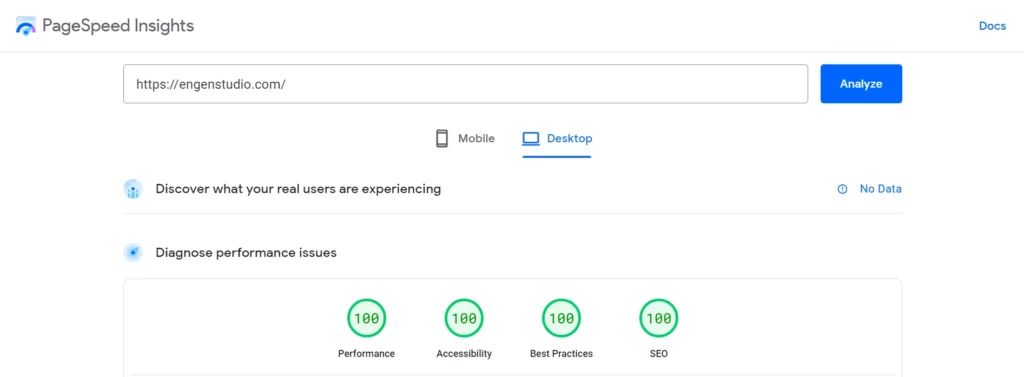
4. Take Advantage of Local SEO
For local businesses, utilising local search engine optimization (SEO) can have a significant impact on your search rankings and help you stand out against your competitors. The goal of local SEO is to optimise your online presence to rank higher in search results for local-based searches.
To effectively optimise your website for local SEO, it is crucial to have accurate and consistent information about your business displayed on your website. This includes your physical address, telephone number, and business hours. Moreover, including your location in your website’s title tags, meta descriptions, and content can also help improve your visibility in local search results.

Along with optimising your website, establishing a robust presence on local business directories such as Google My Business, Bing Places, and Yelp is also essential. By providing updated and accurate information about your business on these directories, you can increase your visibility and reach a wider audience of potential customers in your local area.
5. Focus On Your Online Presence
Establishing a strong online presence is crucial in enhancing your chances of outranking your competitors and improving your online recognition. This entails participating and being active on various digital platforms and consistently interacting with your target audience.
The Power of Social Media
Social media platforms, such as Facebook, Twitter, and Instagram, are useful in promoting your website and expanding your reach to a wider audience. By creating high-quality, engaging content, you can increase your following, drive more traffic to your website, and ultimately increase your online visibility.
Engaging in Online Forums and Communities
Being an active participant in online forums and communities that are relevant to your niche is a great way to build your online presence. By providing valuable and informative answers to questions, you can establish yourself as an expert in your field and also gain important backlinks to your website.
Listing Your Business on Business Directories
Finally, it is important to list your business on popular business directories, such as Google My Business. This will improve your visibility online, make it easier for potential customers to find you, and help you rank higher in search results. By providing accurate and updated information about your business, you can ensure that you make the most of this important opportunity.
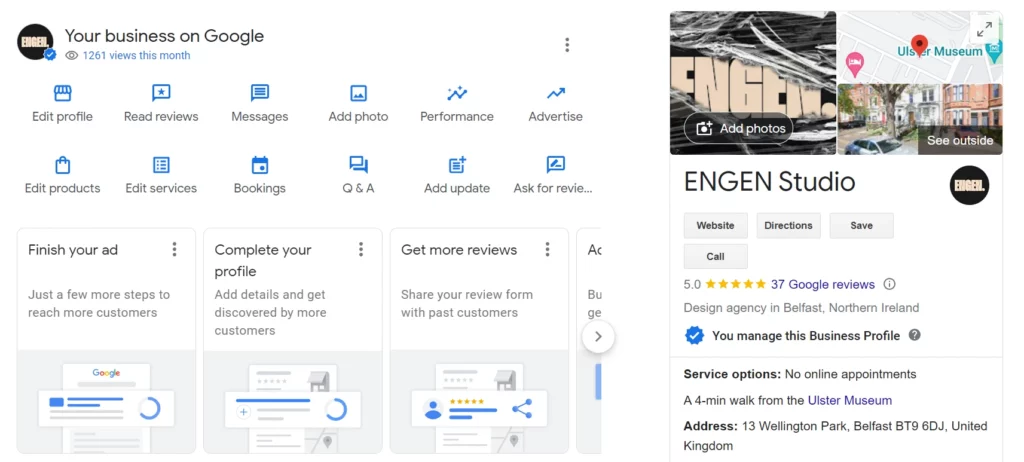
Measuring Progress and Staying Ahead of the Competition
Measuring your progress and staying ahead of your competition are crucial elements of an effective SEO strategy. This requires regularly monitoring key metrics such as your website’s traffic, backlink profile, and search rankings using tools like Google Analytics, Google Search Console, and Semrush.
Tracking Key Metrics
By tracking your key metrics, you have the ability to identify areas for improvement, make necessary changes to your website, and adjust your SEO strategy as needed. This proactive approach can help ensure that your website stays ahead of the competition and continues to achieve higher search rankings over time.
Making Data-Driven Decisions
Having access to data and insights into your website’s performance allows you to make informed, data-driven decisions when it comes to your SEO strategy. This can help you stay on track towards your goals and continuously improve your website’s performance in search rankings.
Maximising Your Competitive Advantage
Being at the forefront of the competition can bring great satisfaction and a sense of accomplishment as you watch your articles climb the search engine rankings and secure the top spot. The hard work you have put in has paid off and the results are evident!
Maintaining Your Lead
However, it is important to not become complacent once you have achieved the top ranking. The competition in the Google SERP is fierce and you must stay vigilant in order to maintain your position. Every time you reach the peak, other articles may attempt to overtake you and claim the #1 spot once again.
Keeping Content Fresh and Relevant
To stay ahead of the competition, you must continue to enhance and update your content. As your article reaches a wider audience, take advantage of this by incorporating eye-catching visuals and video content to keep viewers engaged. This will help to keep your content fresh and relevant, and ensure that no one else takes your top spot.
Staying Up-to-date with Industry Trends
Staying current with industry and digital marketing trends and continuously expanding your existing content can help you maintain your competitive edge and secure your lead. Keeping abreast of changes and innovations within your industry will allow you to remain ahead of the curve and continue to grow and succeed.
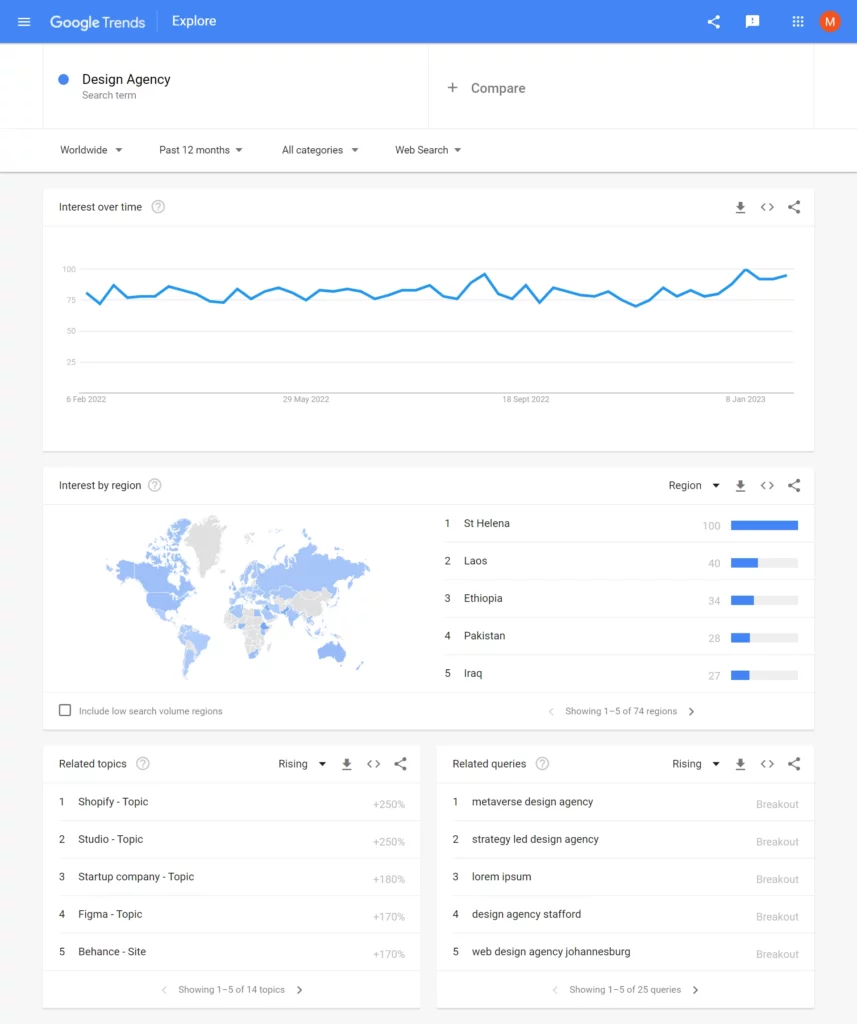
Plan Ahead
When you begin to surpass the rankings of your competitors’ articles, it can feel like a huge accomplishment. You take a moment to pat yourself on the back, hoping that you can maintain this level of success and continue to rise above your competitors in the ever-changing landscape of search engine optimization.
However, maintaining this level of success is not always an easy task. You must stay informed about the strategies your competitors are using and provide fresh, up-to-date, and relevant content that will keep you ahead of the competition.
The good news is that there are tools available that can make this challenge easier. For example, you can track your readership through analytics or determine the popularity of certain topics through keyword research. The key to staying ahead of your competition is to create a comprehensive content plan that anticipates the needs and wants of your audience.
By proactively creating content, you give yourself a significant advantage over your competitors by providing relevant information before they even have a chance to think about it. This also enables you to use keywords more efficiently, increasing your visibility with minimal effort.
When you pair an effective content plan with a solid SEO strategy, you are likely to attract more potential customers, increase engagement levels, and ultimately drive sales. With a well-defined content plan and clear goals in place, you will be able to stay focused and continue to succeed in the long run.
Conclusion On How To Outrank Your Competitors
In conclusion, outranking your competition and achieving higher Google rankings takes a combination of high-quality content, effective backlink building, website optimisation and a deep understanding of Google’s ranking algorithms.
These are great ways to increase your rankings in SERPs and outrank competitors who may not be utilising SEO tactics as effectively as they could be.
By focusing on these key areas, you can give your website the boost it needs to reach the top of the search rankings and attract more traffic and customers.
It’s important to remember that SEO takes time – it isn’t an overnight process – but taking the time now will pay off in the long run. By increasing website traffic organically through organic search queries, you are building strong website fundamentals.

